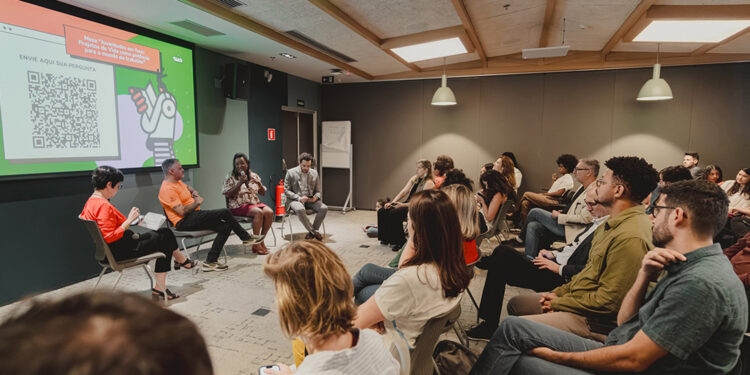Sao Paulo- The Qatari Silatech Foundation has secured job opportunities for 371,332 Brazilian young men and women, aged between 14 and 29, in private sector jobs, through the “One Million Opportunities” initiative, which it launched in November 2022, in partnership with the United Nations Children’s Fund (UNICEF) and the international “Generation Unlimited” initiative.
This achievement reflects the Foundation’s commitment to opening new professional horizons, promoting digital inclusion and entrepreneurship in Brazil, economically empowering youth to realize their full potential, and creating positive change within their communities. The initiative focused on the most marginalized areas, most notably the densely populated Chiradientes area in the far east of São Paulo.
Regarding the experiences gained by the participants in the One Million Job Opportunities Initiative, Ayla Bahous told Al Jazeera Net that this project came to help local youth find job opportunities, but it also provided many courses in various fields.
Expanding horizons
In collaboration with UNICEF, and knowing that the State of Qatar is the sponsor of this initiative, Bahous and her colleague Odara Akiri took some young people to the Million Jobs Fair at the Sinai Foundation to gain skills and experience, she adds.
Sinaï is a Brazilian educational institution founded in the 1940s, which provides services to develop professional and industrial skills among young people.
Speaking to Al Jazeera Net, Akiri said that this project was an experience that allowed her to broaden her horizons regarding public policies targeting marginalized and poor peripheral areas, with a focus on the importance of involving youth from peripheral areas as actors in the labor market.
She added that she gained some good experience through the One Million Job Opportunities Project, and that she worked as a call center employee and a chief medical officer in a pharmacy for manual drug formulations immediately after completing her technical course.
“It was really great to be part of an event that aims to enable young people from vulnerable backgrounds to enter the job market,” says Sabrina Alves de Lima.
De Lima is currently focused on completing a technical course and then looking for a job in the field she trained in. She says the program was successful even though she has not started working yet, but the experience has provided her with unique information and experiences she may not have gotten anywhere else.
Challenges
Regarding the challenges and difficulties facing the youth who benefited from the program, Bahous says that she is currently teaching a training course for youth in the field of financial analysis and banking marketing, and her project is to implement digital literacy in the neighborhood where she lives, “but they have not reached tangible results yet.”
“When we visit schools, I feel that there is still some resistance and lack of acceptance from young people regarding vocational courses,” she adds.
Akiri says that she is currently unemployed, even though she learned a lot about medications and their side effects, and the amount and type of doses that should be given to patients in her last job. She explains that she was able to put into practice everything she learned theoretically during the technical pharmacy training course through the One Million Jobs Project organized by Silatech.
But for now, she says this doesn’t meet her ambitions because she intends to take up a position as a pharmacist, not just as a medical officer, but as a senior drug compounding expert in the hospital, but to do that, she needs to start academic studies.
Akiri continues that after participating in this “huge” social program, she can say that it was the best project she had actively participated in, as she had the opportunity to work freely and independently, and to develop her own communication and outreach strategies.
She stresses that this was in contrast to the previous jobs she had worked in, where the communication methods and standardized mechanisms worked in a way that hindered their closeness to their peers, because communication was done in a hierarchical manner “and not in a horizontal position where we were all equal.”
“Your connection”
The official government website of the state of Sao Paulo states that the Qatari Silatech Foundation is an international non-profit organization that works to connect young people with economic opportunities and career development through innovative business initiatives.
Silatech was founded in 2008 by Sheikha Moza bint Nasser in Qatar, with the aim of enabling young people to access work and become active agents in the economic development of their communities, with a strong commitment to achieving the United Nations Sustainable Development Goal 8 (Decent Work and Economic Growth).
Through collaborative efforts with local, regional and international partners, Silatech focuses on finding comprehensive and innovative solutions in the field of youth employment and self-employment, and ensuring a sustainable and prosperous future for the young generation around the world.



